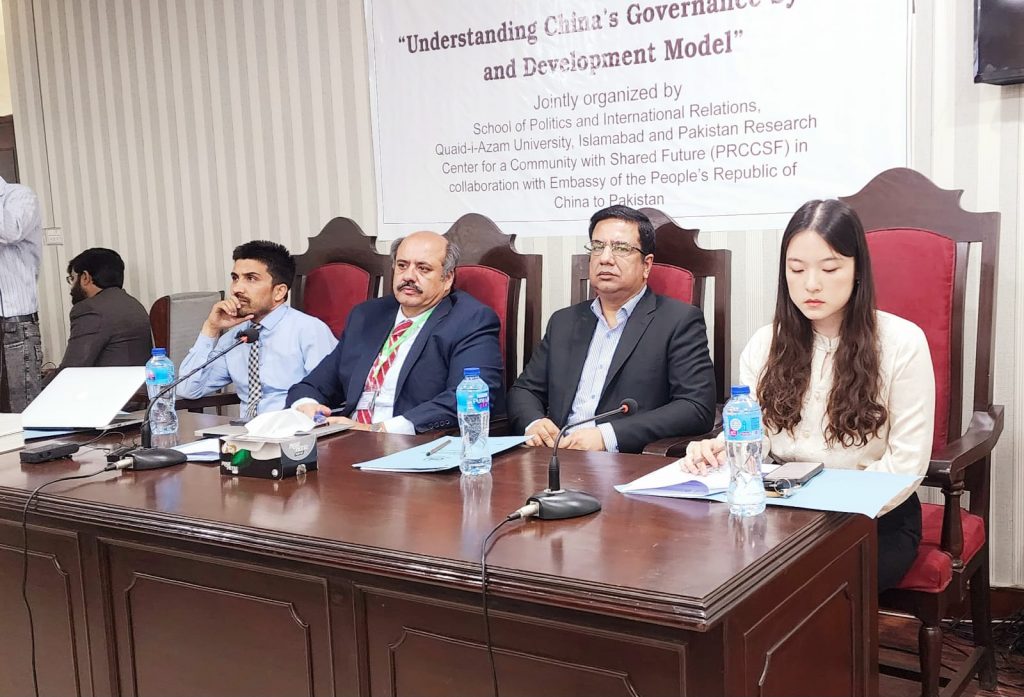An international seminar was held in Islamabad to discuss the Chinese governance model, reforms, global developments, dialogue of civilisations, and socio-economic transformation under the Belt and Road Initiative (BRI), with a specific focus on the China–Pakistan Economic Corridor (CPEC).
The event was jointly organised by the School of Politics and International Relations (SPIR), Quaid-i-Azam University, Islamabad, and the Pakistan Research Centre for a Community with Shared Future (PRCCSF), in collaboration with the Embassy of the People’s Republic of China to Pakistan.
Speaking at the seminar, Professor Li Huailing, Dean of the Institute for a Community with Shared Future, Communication University of China (CUC), Beijing, China, emphasised how China is a driving force for economic development in the region and is connecting the world.
Director SPIR, Prof. Dr. Zafar Nawaz Jaspal presented his thoughts on China’s contemporary global world order and China’s role in establishing peace and harmony between the Kingdom of Saudi Arabia and the Islamic Republic of Iran.
Moreover, he explained how China prioritises geoeconomics over geostrategic factors through its investments in Pakistan and the region. He described projects like CPEC as a source of immense value for Pakistan, Afghanistan, and other states in the region.
“In such circumstances, we must determine how to harness cooperation dividends for our economic prosperity,” he added.
The seminar was attended by faculty members of SPIR, PRCCSF researchers, Chinese Embassy officials, print and electronic media reporters, and nearly 100 undergraduate and postgraduate students.





